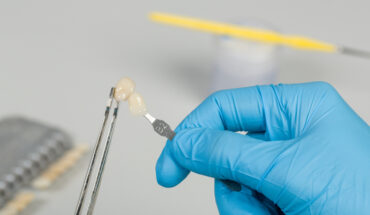
Unlocking the mysteries of consciousness has long been a quest for humanity. We delve into ancient philosophies, explore the depths of our minds through meditation and mindfulness practices, and seek spiritual connections in various aspects of our lives. But what if I told you that one key to unlocking your consciousness lies within your own mouth? Yes, that’s right – your teeth! In this captivating blog post, we will unravel the intriguing connection between teeth and consciousness. Prepare to be amazed as we journey through the spiritual significance of teeth across cultures, explore the link between oral health and overall well-being, and discover mindful dental practices that can enhance your connection with consciousness. So grab a cup of tea (or maybe even some tooth-friendly snacks!) because we’re about to embark on an enlightening adventure like no other!
The concept of teeth and consciousness
Teeth, those pearly whites that adorn our mouths, have a deeper connection to our consciousness than we may realize. In many ancient spiritual traditions, teeth are regarded as more than just tools for chewing or flashing confident smiles. They are seen as conduits of energy and gateways to higher states of awareness.
According to these beliefs, teeth are connected to specific meridians in the body – channels through which life force energy flows. The wisdom teeth, in particular, hold a special significance. It is believed that having your wisdom teeth extracted may effect your meridians and disrupt the flow of energy throughout your system.
While scientific evidence on the direct link between teeth and consciousness is still evolving, it’s fascinating to explore how different cultures have recognized this connection for centuries. From ancient Indian Ayurvedic practices associating each tooth with different emotions and energies to Chinese medicine connecting dental health with specific organs in the body – there is a wealth of knowledge waiting to be discovered about this remarkable relationship.
Whether you choose to embrace these spiritual beliefs or approach it from a purely scientific standpoint, one thing remains clear: maintaining oral health should not be taken lightly. Taking care of your teeth goes beyond just brushing and flossing – it involves nourishing an essential part of yourself that holds potential connections to your overall well-being.
So next time you brush your teeth or sit in the dentist’s chair for an exam or extraction, take a moment to acknowledge the profound interconnectedness between your oral health and consciousness. It’s yet another reminder that everything within us is intertwined – mind, body,and soul – offering endless possibilities for growth and self-awareness.
The spiritual significance of teeth in different cultures
The spiritual significance of teeth in different cultures is a fascinating topic that sheds light on how our oral health connects to our consciousness. In many ancient cultures, teeth hold deep symbolic meaning and are believed to be more than just physical structures.
In traditional Chinese medicine, for instance, it is believed that each tooth is connected to a specific meridian or energy channel in the body. When a tooth becomes diseased or needs extraction, it can disrupt the flow of energy along that particular meridian. This disruption may impact overall well-being and even affect consciousness.
Similarly, Native American tribes attribute spiritual significance to teeth as well. Some believe that wisdom teeth symbolize personal growth and enlightenment. Having your wisdom teeth extracted may not only impact the physical body but also affect the energetic flow within you.
Moreover, in Hinduism, teeth play an important role during death rituals. It is customary for family members to place coins or rice grains inside the mouth of the deceased before cremation—a symbolic act representing their journey into the afterlife.
These cultural beliefs highlight the profound connection between our oral health and our consciousness. By understanding these spiritual significances from different cultures, we can gain insight into how caring for our teeth goes beyond mere hygiene—it becomes an integral part of nurturing our overall well-being and maintaining balance within ourselves.
The link between oral health and overall well-being
Oral health goes beyond just having a bright smile or fresh breath. It is intricately connected to our overall well-being. When we think about the link between oral health and our general health, we often focus on the physical aspects – tooth decay, gum disease, and their impact on our bodies. However, there is also a deeper connection between oral health and our mental and emotional well-being.
Intriguingly enough, there are also theories suggesting that regeneration may be possible after tooth extraction. Some researchers propose that certain practices like stem cell therapy could potentially stimulate the regrowth of lost teeth and restore their connection with our consciousness.
Research has shown that poor oral hygiene can contribute to various systemic diseases such as heart disease, diabetes, respiratory infections, and even dementia. The mouth serves as a gateway for bacteria to enter the body, so it’s essential to maintain good oral hygiene practices like regular brushing, flossing, and dental check-ups.
But it doesn’t stop there. The state of our teeth and gums can also affect how we feel about ourselves mentally and emotionally. Having dental issues or experiencing chronic pain in the mouth can lead to feelings of self-consciousness or low self-esteem. Conversely, taking care of your oral health can boost confidence levels and improve overall happiness.
Moreover, our mouths are not only responsible for chewing food but also play an integral role in communication.
A healthy set of teeth enables clear speech while dental problems like missing teeth or misalignment may cause difficulties in articulation.
This can have implications on social interactions leading to feelings of isolation or embarrassment.
On the other hand, maintaining optimal oral health allows you to express yourself freely without any hindrances.
In addition, there is growing evidence suggesting that poor oral health during pregnancy may increase the risk of preterm birth or low birth weight babies. Pregnant women should pay extra attention to their dental care routine by visiting their dentist regularly and practicing good habits at home like brushing with fluoride toothpaste twice a day and avoiding sugary snacks that can contribute to tooth decay.
Overall, the connection between oral health and overall well-being cannot be understated. Taking care of your teeth and gums goes beyond just maintaining your smile.
Mindful dental practices for a better connection with your consciousness
Taking care of our teeth and oral health is not just about maintaining physical well-being, but it can also have a profound impact on our overall consciousness. By adopting mindful dental practices, we can strengthen the connection between our teeth and our deeper self. Here are some ways to cultivate this connection:
1. Practice good oral hygiene: Regular brushing, flossing, and rinsing with mouthwash are fundamental for maintaining healthy teeth and gums. By being present during these activities, focusing on each stroke or movement, you can turn them into mindfulness exercises.
2. Choose natural oral care products: Many commercial toothpaste brands contain artificial ingredients that may disrupt the energy flow in our meridians – the channels through which vital energy flows within us according to traditional Chinese medicine. Opting for natural toothpaste alternatives may help preserve this energetic balance.
3. Pay attention to your diet: The foods we consume affect not only our physical health but also our energetic state. A balanced diet rich in vitamins and minerals supports dental health while promoting overall well-being.
4. Consider holistic dentistry: Holistic dentists approach oral health from a whole-body perspective and strive to minimize invasive procedures whenever possible. If you need wisdom teeth extraction or any other dental procedure that may impact your meridians, consult with a holistic dentist who understands the interconnectedness of body systems.
5. Energy healing modalities: Some alternative therapies like acupuncture or acupressure target specific points along meridians to promote energy flow throughout the body—including those connected to your teeth—enhancing both their physical condition as well as their spiritual significance.
By integrating these mindful dental practices into your daily routine, you can forge a stronger connection between your teeth and consciousness while nurturing overall wellness!
Remember, every smile carries an underlying story—a reflection of who we are at a deeper level—and by caring for our oral health consciously, we can embark on a journey of self-discovery and enhanced well-being.




